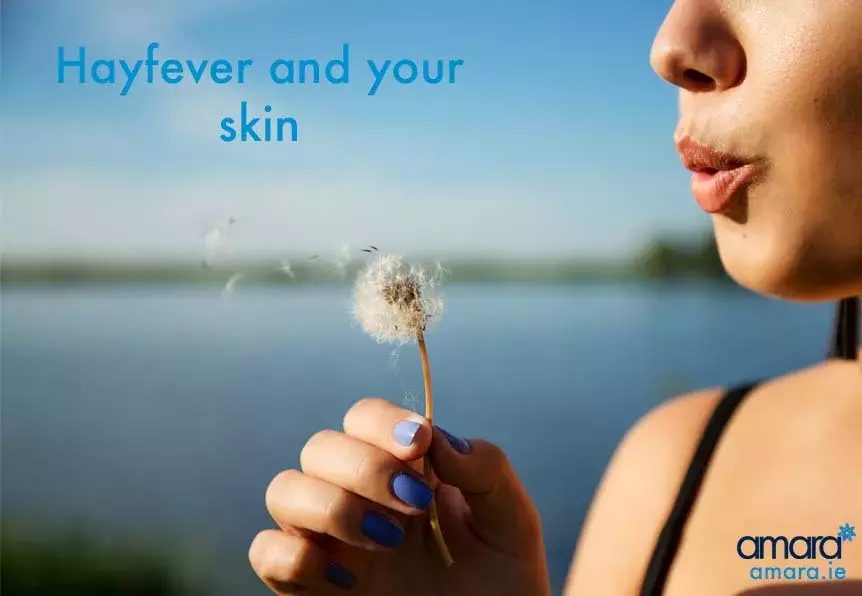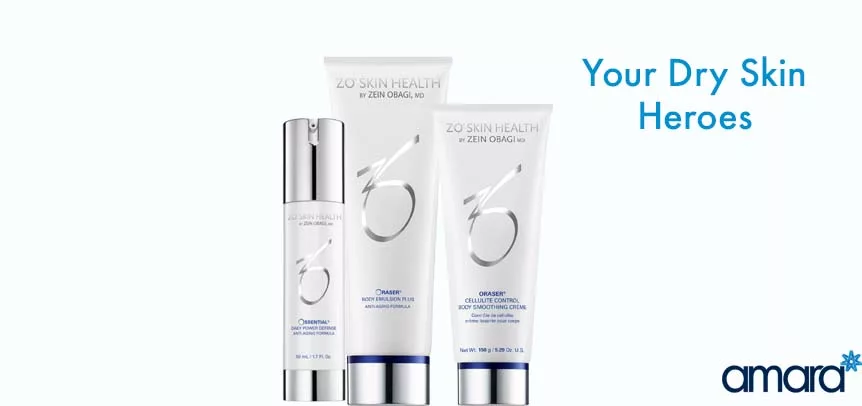
How can Hay Fever wreak havoc with your skin?
Tis the Season to be itchy… ah ah ahah ahah a
Hayfever wreaks havoc for many of us each summer (about 30% of Adults and 40% of children get hayfever). Aside from meddling with our noses it can also irritate in our skin in ways that we may not be aware of.
What exactly is Hay Fever?
Contrary to its name it has nothing to do with hay! The name became popular as it tends to coincide with the hay harvesting season so they named it after that. Hay fever is caused by allergens in the air such as Pollen from plants, grass, trees or weeds. During the season these Allergies become worse as plants release their pollen earlier in the day- as the day gets warmer more and more flowers open and more pollen gets released.
Symptoms of Hay Fever
It is likely that much more people actually have hay fever than they realise as many people may mistake it for a cold. The most common symptoms of hayfever are:
- Watery/Itchy Eyes
- A runny nose
- Blocked Nose
- Sneezing
- Itchy Nose, Mouth, Throat and Ears
- A cough
- Blocked Sinus (causing headaches and facial pain)
- Earaches
- Tiredness and Fatigue
With these symptoms, it’s no wonder that Hay fever has become a bane of Irish people however Hay Fever also has other symptoms that many people may not be aware of.
What is Hay Fever doing to your skin?
Dry and Irritated
With Hay fever, we are rubbing and scratching at our faces more. Constantly blowing our nose with tissue can lead to the very dry skin around the nose and lead to a buildup of dead skin cells. Constantly blowing can also make our nose irritated and also cause red patches of skin.
Hives
As hay fever is an allergic reaction we can naturally have other symptoms like breaking out in hives. This can contribute to the itchy feeling that Hay Fever gives us. Scratching at this hives will make them worse and will cause more to appear.
Dermatitis and Eczema
Many people with hayfever may break out in a rash somewhere on their body, this may actually be Atopic Dermatitis or Eczema. This rash may occur anywhere on the body (such as the back). Often it can be mistaken for hives however this rash will usually look blotchy and red. It may also be itchy and be irritated further by clothing. Avoid harsh scrubs and exfoliating to irritate your skin further.
How can I stop Hay fever from affecting my skin?
Unfortunately, once you have Hay fever there is no way to secure it. However, there are a number of ways we can maintain:
Take antihistamines – Antihistamines can help with the symptoms of hayfever such as itchiness and runny noses. There are a number of different brands containing different strengths and active ingredients, after taking one for a while we may become used to it and have to switch to another. Ask your pharmacist about this and see what they recommend for you.
Nasal Sprays – There are a number of nasal sprays that can prevent the pollen from entering your system if used in the morning before you go outside and also work well with antihistamines.
Eye Drops – Eye drops are available that contain an antihistamine, perfect for dry or itchy eyes.
Steroid Cream – For rashes caused by Dermatitis or Eczema a steroid cream such as Hydrocortisone could be used. As many people may think these are hives or simply dry patches of skin they may make it worse by aggressively exfoliating them. Try to avoid irritating these patches by wearing loose clothing. Never assume that you know what a rash is, go to your GP about this (particularly if this is the first time it has happened). They may prescribe a stronger strength cream depending on the condition of your skin.
With hayfever your skin may feel itchy, it’s important not to scratch, instead keep your skin hydrated using lightweight serums and body emulsions.

Always make sure you know exactly what you are treating, never assume it’s hay fever and then treat a cold with antihistamines. Ask a pharmacist or see a Skin Specialist about anything strange on your skin.
Do you have any tips on dealing with Hay Fever? Let us know!

Post a comment